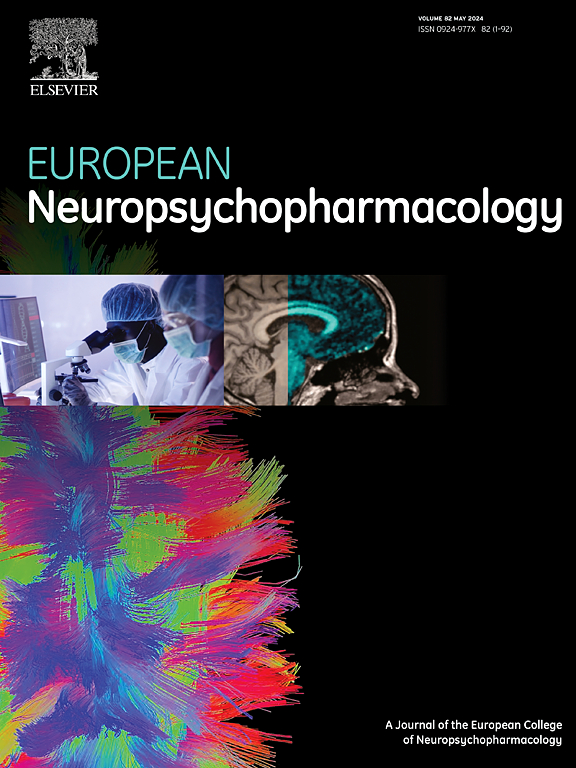DISSECTING THE GENETIC BASIS OF SCHIZOPHRENIA USING FUNCTIONAL GENOMICS AND PLURIPOTENT STEM CELL MODELS
IF 6.1
2区 医学
Q1 CLINICAL NEUROLOGY
引用次数: 0
Abstract
Schizophrenia (SCZ) is a highly heritable mental disorder with thousands of associated genetic variants located mostly in the noncoding space of the genome. Translating these associations into insights into the underlying pathomechanisms has been challenging because the causal variants, their mechanisms of action, their target genes and their joint impact remain largely unknown. In this talk, I will discuss our efforts to address these challenges from three complementary angles. To understand the function of individual genetic variants, I will present our work on massively parallel genetic variant screening and functional annotation in induced pluripotent stem cell (iPSC) derived neuronal cell types. In addition, I will share our recent results on leveraging large cohorts of iPSC derived neurons from deeply phenotyped patients as in vitro models of polygenicity. In this context, we sought to translate the effects of highly heterogenous polygenic risk across individuals into common molecular mechanisms underlying the etiology in SCZ, identifying several molecular, cellular and circuit level endophenotypes as points of convergence. Lastly, I will discuss our newly developed strategies to link these molecular and cellular alterations to patient level intermediate phenotypes such as aberrant EEG patterns and cognitive impairment.
利用功能基因组学和多能干细胞模型剖析精神分裂症的遗传基础
精神分裂症(SCZ)是一种高度遗传性精神障碍,其相关基因变异数以千计,大多位于基因组的非编码空间。由于致病变异、其作用机制、靶基因及其共同影响在很大程度上仍不为人所知,因此将这些相关性转化为对潜在病理机制的洞察力一直具有挑战性。在本讲座中,我将从三个互补的角度讨论我们为应对这些挑战所做的努力。为了了解单个遗传变异的功能,我将介绍我们在诱导多能干细胞(iPSC)衍生神经细胞类型中开展的大规模并行遗传变异筛选和功能注释工作。此外,我还将分享我们最近在利用来自深度表型患者的大量 iPSC 衍生神经元队列作为多基因体外模型方面取得的成果。在这种情况下,我们试图将个体间高度异质性多基因风险的影响转化为 SCZ 病因的共同分子机制,并确定了几个分子、细胞和回路水平的内表型作为趋同点。最后,我将讨论我们新开发的将这些分子和细胞改变与患者水平中间表型(如异常脑电图模式和认知障碍)联系起来的策略。
本文章由计算机程序翻译,如有差异,请以英文原文为准。
求助全文
约1分钟内获得全文
求助全文
来源期刊

European Neuropsychopharmacology
医学-精神病学
CiteScore
10.30
自引率
5.40%
发文量
730
审稿时长
41 days
期刊介绍:
European Neuropsychopharmacology is the official publication of the European College of Neuropsychopharmacology (ECNP). In accordance with the mission of the College, the journal focuses on clinical and basic science contributions that advance our understanding of brain function and human behaviour and enable translation into improved treatments and enhanced public health impact in psychiatry. Recent years have been characterized by exciting advances in basic knowledge and available experimental techniques in neuroscience and genomics. However, clinical translation of these findings has not been as rapid. The journal aims to narrow this gap by promoting findings that are expected to have a major impact on both our understanding of the biological bases of mental disorders and the development and improvement of treatments, ideally paving the way for prevention and recovery.
 求助内容:
求助内容: 应助结果提醒方式:
应助结果提醒方式:


